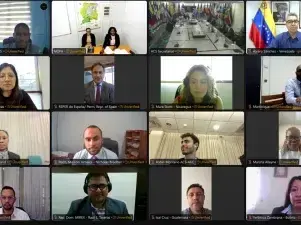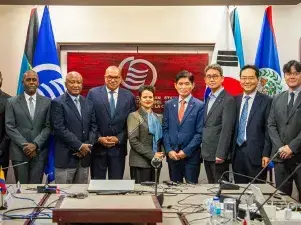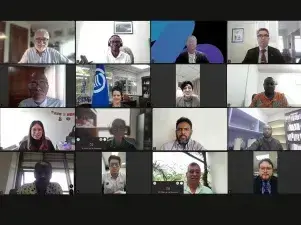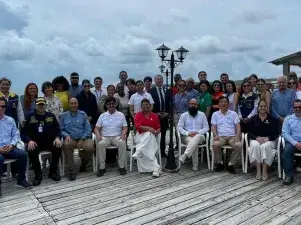ACS joins regional efforts to preserve and restore blue carbon ecosystems and coastal resilience
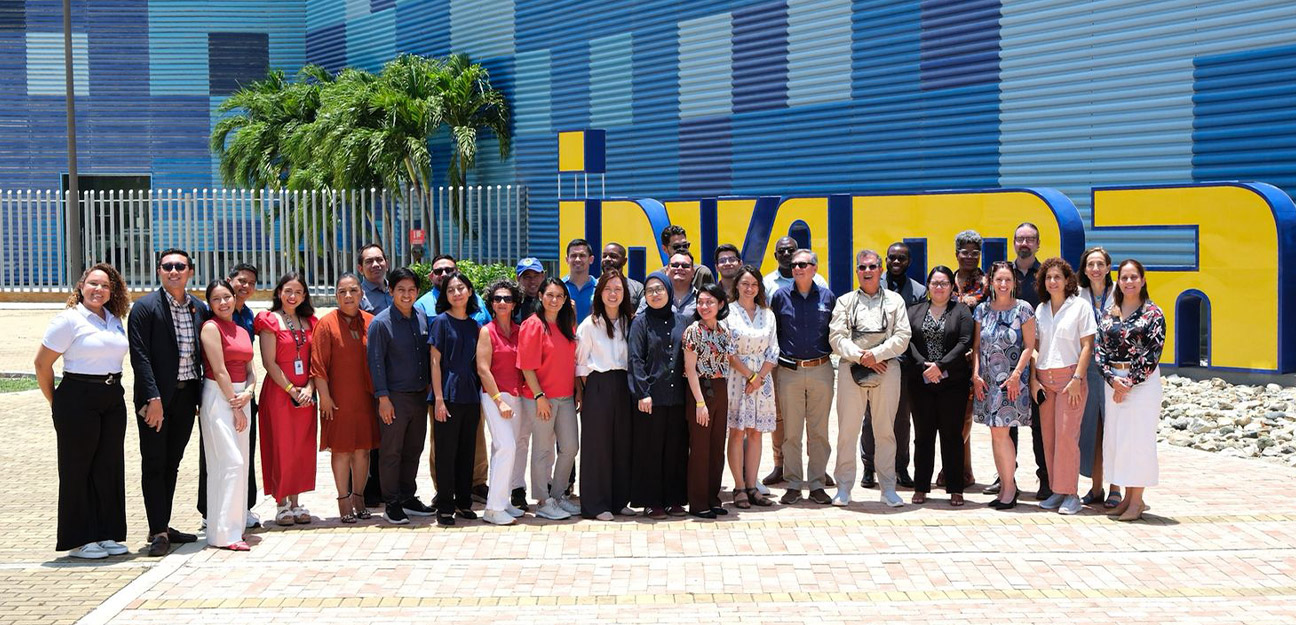
Santa Marta, Colombia – September 2, 2025.
The Association of Caribbean States (ACS) participated in the Blue Carbon Course: Strengthening Knowledge on Blue Carbon and Coastal Resilience, held from August 25 to 29 in Bogotá and Santa Marta. The event was organized by the Government of Colombia through APC-Colombia, Conservation International, and INVEMAR.
The ACS was represented by Ms. Elisabet Torres, Advisor to the Directorate of Cooperation and Resource Mobilization, and Mr. Jonathan Alexander, Research Assistant in the Directorate of Disaster Risk Reduction, Sustainable Tourism, Caribbean Sea and Environment.
In her intervention, Ms. Torres emphasized the importance of these spaces to better understand the realities of the Greater Caribbean countries, their challenges and initiatives, and to explore how the ACS can strengthen its work on the protection and restoration of blue carbon ecosystems. She presented the ACS-led initiatives to address the proliferation of sargassum currently affecting the region, aimed at developing cooperative projects to mitigate its ecological, social, health, and economic impacts, while promoting the sustainable management of coastal ecosystems.
She further called for the consolidation of strategic partnerships and the mobilization of financing to build the capacities of new generations in the forestry and environmental fields, as an essential way to ensure the sustainability of the natural wealth provided by mangroves. Finally, she reiterated the commitment of ACS Member States to establish a structured mechanism for sargassum management and mangrove protection, as set forth in the Montería Declaration adopted during the Greater Caribbean Summit 2025.
The event aimed to strengthen capacities in blue carbon policies, climate finance, and conservation, while also providing opportunities to share experiences on mangrove and coastal ecosystem restoration. Activities began in Bogotá with a welcome meeting at the Ministry of Foreign Affairs of Colombia and continued in Santa Marta with technical sessions, group discussions, and a field visit to the Ciénaga Grande de Santa Marta—the largest coastal wetland in Colombia and one of the most representative in the Greater Caribbean. The course concluded with a presentation by the Fundación Tras La Perla and a visit to the INVEMAR facilities.
The participation of the ACS reaffirms its commitment to regional cooperation, the strengthening of climate resilience, and the sustainability of the coastal ecosystems of the Greater Caribbean.
About the Association of Caribbean States
The Association of Caribbean States (ACS) is an intergovernmental organization established in 1994 through an international convention, with the aim of promoting consultation, cooperation, and concerted action among the countries of the Greater Caribbean. It currently comprises 25 Member States and 10 Associate Members and is guided by the principles of multilateralism, respect for sovereignty, and unity in diversity that characterize the Greater Caribbean region.
Related News
ACS Member States Approve Sustainable Tourism Work Programme—Accelerating 2026 Delivery Across the Greater Caribbean
Port of Spain, Trinidad and Tobago | 9 January 2026 — The Membership of the Association of Caribbean States (ACS) approved the Sustainable Tourism Work Programme for the period 2025–2026 at the
ACS and KIOST Host Inaugural Joint Workshop and Seminar, Celebrating the Establishment of the Joint Ocean Research Center
Port of Spain, Trinidad and Tobago – 6 November 2025
The Association of Caribbean States (ACS) and the Korea Institute of Ocean Science and Technology (KIOST) hosted their
Collaborative Webinar Explores SDG Data and Blue Economy Opportunities in the Caribbean
Port of Spain, Trinidad and Tobago — 31 October 2025
The Association of Caribbean States (ACS) co-organized the webinar “Advancing SDG Reporting for the Blue Economy in Latin America and




